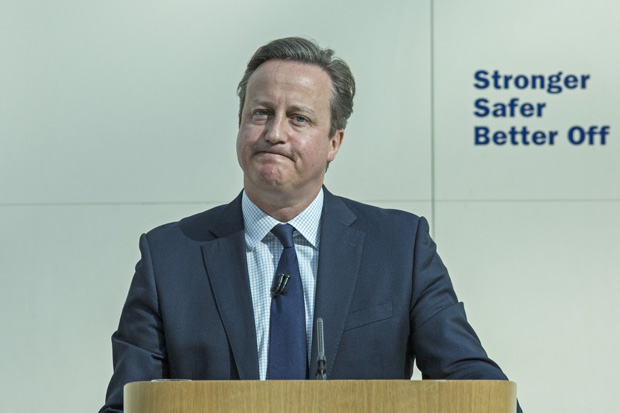One of the many problems with David Cameron’s threat that leaving the European Union could plunge us into war is that it sits so strangely with how he spoke about the EU before he called a referendum. In those days, he was studiedly cool about the union: he had no sentimental attachment to it, he told us, just a pragmatic weighing of the advantages for Britain, depending on what he could obtain.
Already a subscriber? Log in
Subscribe for just $2 a week
Try a month of The Spectator Australia absolutely free and without commitment. Not only that but – if you choose to continue – you’ll pay just $2 a week for your first year.
- Unlimited access to spectator.com.au and app
- The weekly edition on the Spectator Australia app
- Spectator podcasts and newsletters
- Full access to spectator.co.uk
Or
Unlock this article
You might disagree with half of it, but you’ll enjoy reading all of it. Try your first month for free, then just $2 a week for the remainder of your first year.













Comments
Don't miss out
Join the conversation with other Spectator Australia readers. Subscribe to leave a comment.
SUBSCRIBEAlready a subscriber? Log in